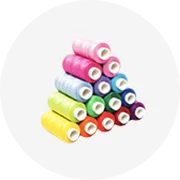

Wholesale Cheap Sales Of Quality Sisal Fibre Sisal Hemp Natural UG Grade Sisal Fiber For Exportation


Up To 80ft Coconut Palm Kernel Picker Areca Nut Harvesting Poles Telescopic Carbon Fiber Pole



















Palm fiber is a versatile natural product derived from various palm species. It is known for its durability and eco-friendly attributes. This fiber is extracted from parts of palms, such as the coconut (coir fiber) or the date palm, making it a renewable resource with a wide range of applications.
The types of palm fiber vary based on their source. Date palm fiber is obtained from the date palm tree and is notable for its strength and rigidity. Sugar palm fiber, extracted from the sugar palm tree, is recognized for its toughness and is often used in heavy-duty applications. Raffia palm fiber, or fiber raphia, is sourced from the raffia palm and is commonly used in textiles and handicrafts. Additionally, palm leaf fiber is harvested from the leaves of the palm, offering a different texture and quality.
Palm fibers are employed in a variety of applications due to their natural properties. They are used as filling material in the upholstery industry and as a base for spinning yarns in the textile sector. In agriculture, palm fibers serve as mulch and soil conditioner, while in the construction industry, they are incorporated into composites for insulation and acoustic purposes.
One of the primary features of palm fiber is its sustainability. As a natural product, it is biodegradable and contributes to a reduced environmental footprint. The fibers are also flame retardant and possess anti-UV properties, making them suitable for outdoor applications. Their natural colors, ranging from white to natural brown, allow for versatility in use without the need for artificial dyes.
Palm fibers are categorized based on their material properties. Coir fiber, for instance, is known for its moisture resistance and resilience. The quality of palm fibers is determined by their tensile strength, elasticity, and ability to withstand wear and tear, making them a reliable choice for various industrial needs.
The production of palm fibre products is increasingly leaning towards sustainable practices. The use of palm fiber contributes to the global effort of reducing synthetic material use and promoting products that are more environmentally friendly. Its biodegradability and renewable nature make palm fiber an excellent choice for eco-conscious industries.